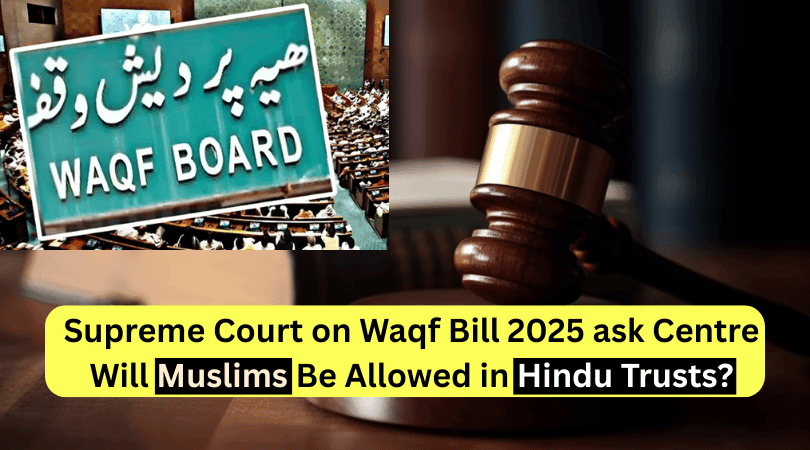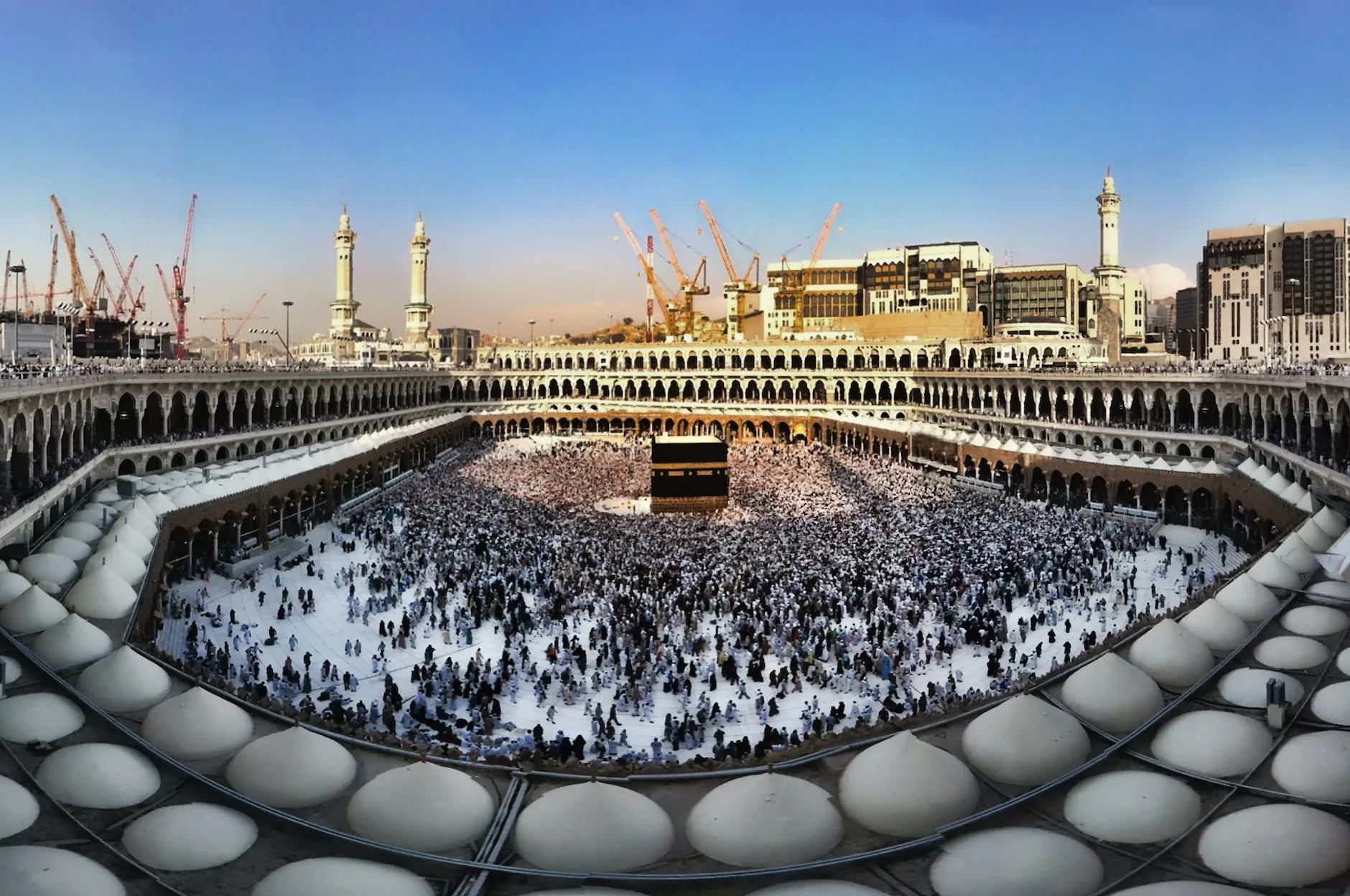Waqf Bill 2025 Hearing : Supreme Court Asks Govt About Protests, Land Fights & Fairness
The Supreme Court is questioning the government on the Waqf Bill, focusing on protests, land disputes, and ensuring fairness for all communities.

Date 16, April 2025 : The Supreme Court of India is set to deliver a landmark decision on the controversial Waqf Amendment Act, 2025, a law that has sparked nationwide debates, violent protests, and urgent legal challenges. With over 70 petitions pending, the court’s ruling will determine the future of Waqf property management, religious autonomy, and India’s commitment to secular governance. Here’s what the Supreme Court has said so far and why millions are awaiting its verdict.
Also Read : Hajj Quota 2025 Cancelled – Saudi Cancels Majority of Private Quota of India
What Is the Waqf Amendment Act, 2025?
The Waqf Act governs Muslim religious endowments, such as mosques, schools, and charitable properties. The 2025 amendment aims to reform the 1995 law by:
- Including non-Muslim members in Waqf Boards and the Central Waqf Council .
- Removing “waqf by user”—a practice where properties used for religious purposes for decades are recognized as Waqf without formal deeds .
- Empowering district collectors to resolve disputes over government land claimed as Waqf .
- Allowing appeals against Waqf Tribunal decisions in High Courts .
The government argues these changes bring transparency and curb misuse, but critics call it an attack on Muslim rights and religious autonomy .
What Did the Supreme Court Say to the Centre?
During hearings on April 16–17, 2025, the Supreme Court raised critical questions and proposed interim measures:
1. “You Can’t Undo History”: Protecting ‘Waqf by User’ Properties
The court highlighted that many historic mosques, like Delhi’s Jama Masjid, lack formal deeds but are recognized as Waqf due to centuries of religious use. Chief Justice Sanjiv Khanna warned, “If you de-notify waqf-by-user properties, it will create chaos” .
- Example: The Tamil Nadu Waqf Board’s claim over a 1,500-year-old Hindu temple village sparked outrage, showing how “waqf by user” can lead to disputes .
- The court proposed an interim order to protect such properties until a final decision .
2. “Will Muslims Be Allowed in Hindu Trusts?”
The bench questioned the fairness of mandating non-Muslim members in Waqf Boards while Hindu endowments remain exclusive. “If Hindus don’t allow outsiders, why should Waqf Boards?” the CJI asked .
- The Act allows up to 2 non-Muslim members in Waqf Boards, but the court emphasized that religious institutions should retain autonomy.
3. Violence in Bengal: A “Disturbing” Fallout
The court condemned violent protests in Murshidabad (West Bengal), where 3 died opposing the law. “When the matter is before us, protests should not turn violent,” the CJI stated .
4. “Producing 15th-Century Deeds Is Impossible”
The Centre’s requirement for registered deeds to prove Waqf status drew sharp criticism. The court noted that mosques built before British land laws cannot meet this demand, calling it “unreasonable” .
Why Are People Protesting?
- Muslim Groups: AIMPLB, Jamiat Ulama-i-Hind, and politicians like Asaduddin Owaisi argue the law violates constitutional rights and undermines Islamic principles .
- Farmers & Homeowners: In Karnataka, Tamil Nadu, and Bihar, families face eviction as Waqf Boards claim ancestral lands .
- Political Divide:
- BJP: Claims the law prevents corruption and ensures welfare for poor Muslims .
- Opposition: Congress, TMC, and AAP accuse the government of polarizing voters and eroding minority rights .
What’s Next?
The Supreme Court is weighing two paths:
- Transfer cases to a High Court for detailed review.
- Issue an interim order to:
- Protect existing Waqf properties .
- Freeze disputed land decisions until the final verdict .
- Ensure Waqf Boards remain majority-Muslim .
A ruling favoring the government could reshape India’s religious property landscape. A setback for the law might reignite protests and deepen political tensions.
Why This Decision Matters
- Secularism vs. Religious Autonomy: Can the government regulate religious institutions without infringing on minority rights? .
- Property Rights: Over 8.7 lakh Waqf properties, worth ₹1.2 lakh crore, are at stake .
- Social Harmony: Violent clashes in Bengal and Karnataka show how land disputes can escalate into communal strife .
Final Thoughts
The Supreme Court’s decision will shape India’s approach to religious freedom, governance, and historical justice. With passions running high on both sides, the verdict must balance reform with respect for centuries-old traditions. As the CJI remarked, “We cannot rewrite history”—but the court’s words will undoubtedly make it.
(Sources: The Hindu , Times of India , PRS India )


